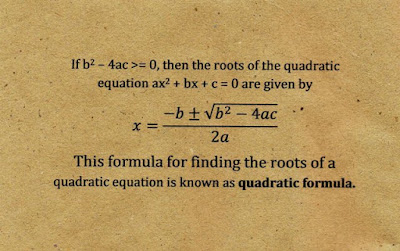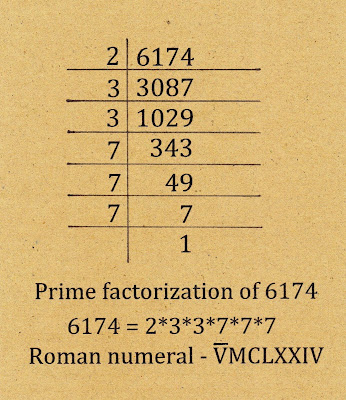
- Definition of quadratic equation: A quadratic equation in the variable x is an equation of the form ax^2 + bx + c = 0, where a, b, c are real numbers, and a is not equal to zero, e.g. 6x^2 - x - 2 = 0.
- In fact, any equation of the form p(x) = 0, where p(x) is a polynomial of degree 2, is a quadratic equation.
- A real number α is called the root of the quadratic equation ax^2 + bx + c = 0, if aα^2 + bα + c = 0.
- The roots and zeroes of the quadratic equation ax^2 + bx + c = 0 are the same thing.
- Standard form of the quadratic equation is ax^2 + bx + c = 0, and a is not equal to zero.
- If b^2 - 4ac >= 0, then the roots of the quadratic equation ax^2 + bx + c = 0 are given by the formula given in the picture.
- Discriminant: Since b^2 - 4ac determines whether the quadratic equation has real roots or not, b^2 - 4ac is called the discriminant of the quadratic equation.
A quadratic equation has:
- two distinct real roots, if b^2 - 4ac > 0,
- two equal real roots, if b^2 - 4ac = 0,
- no real roots, if b^2 - 4ac < 0
A quadratic equation can be solved by factorization or by completing the square.




Comments
Post a Comment